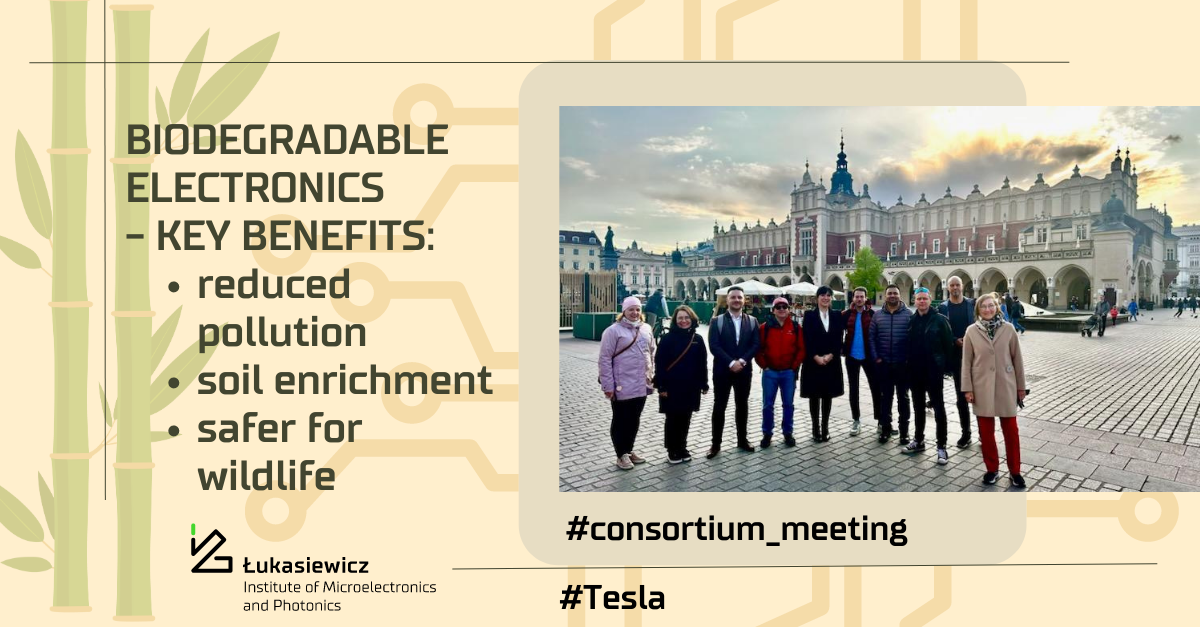At the end of April, a consortium meeting of all the participants of the TESLA project (Łukasiewicz – IMiF, University of Glasgow, CSEM, VTT, and TAU) was held in beautiful Krakow. They have decided to develop a biodegradable pH sensor based on the one that we already have. „Just the ceramic substrate will be replaced with a biopolymer one” – explains the leader of the project – Beata Synkiewicz-Musialska, PhD., Eng. of Łukasiewicz – IMiF.
Why? Many biopolymers decompose under the influence of macro- and microorganisms into H2O, CO2 and non-toxic chemicals. The decomposition time varies, but it gives grounds for creating substrates that will not remain in our ecosystem indefinitely – adds our researcher.
Soon, the first results of the compatibility of our biodegradable substrates with sensory layers will be known!
Additionally, we would like to say that pH sensors developed by our researcher Kiranmai Uppuluri, MSc, do work when are in direct contact with a plant tissue! It means that in future we may have the ability to measure the parameters of the plant in direct contact with its tissue. A change in the pH of the plant may indicate a disease process, attack by fungi or molds.
Also, during the meeting, our researchers presented numerous materials developed by our Research group – LTCC Technology. Many of them were handed over to our consortium members. „We believe that they will be used in the newly developed biodegradable system used to control selected physicochemical parameters for crops” – adds Beata Synkiewicz-Musialska, PhD.


